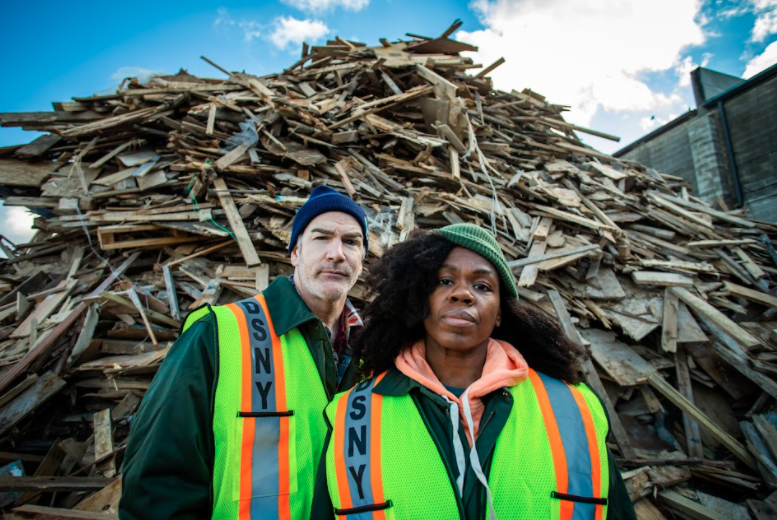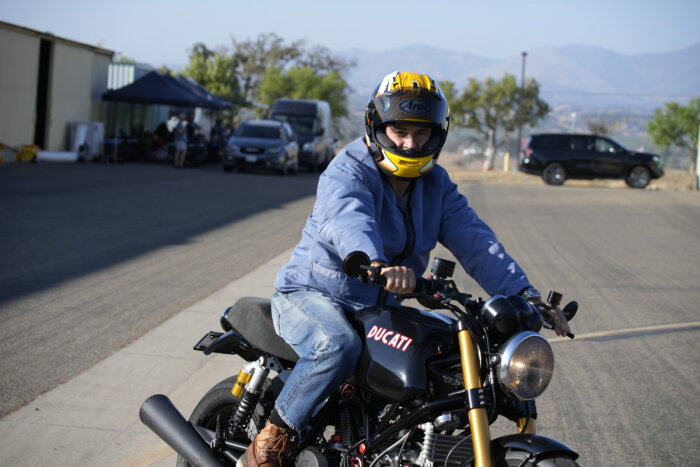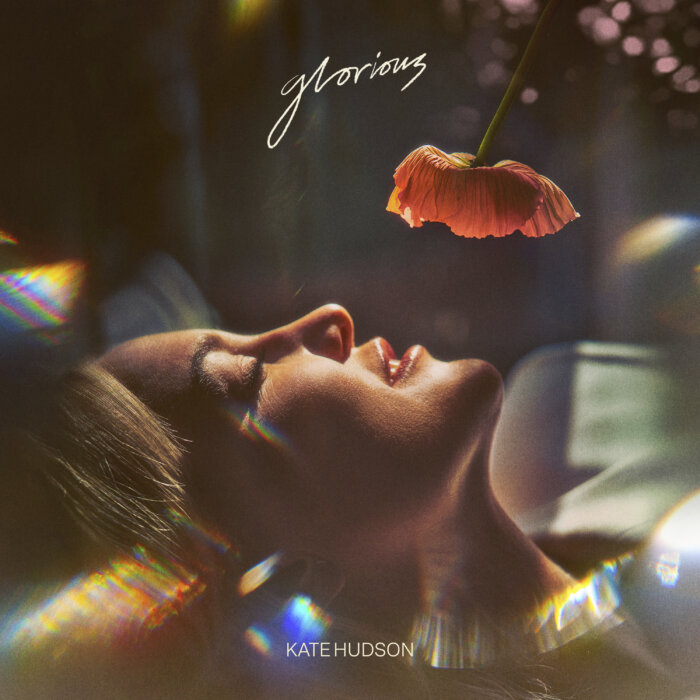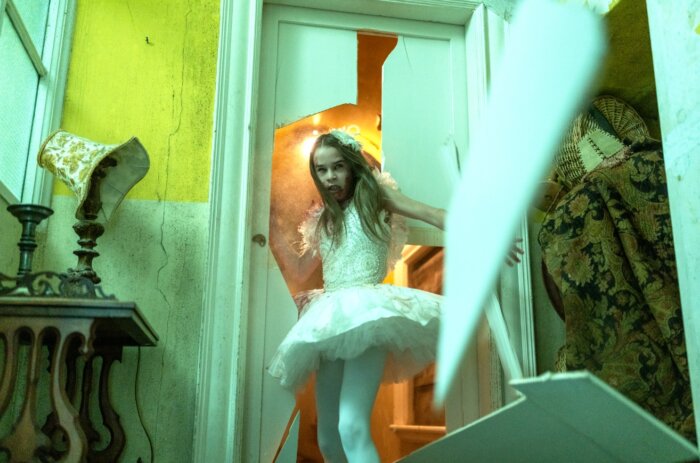Garbage trucks are commonplace almost everywhere, but have you ever really wondered what goes on during trash collection routes? What do the men and women operating the trucks talk about? What do they fight about? What do they agree on, and how can they learn from each other?
Playwright Lindsay Joelle explores those answers in ‘The Garbologists,’ opening at the Philadelphia Theater Company this month.
Taking place in the confined space of a truck, two characters—the white, blue-collar mansplainer Danny and a Black, Ivy League-educated newbie Marlowe—are partnered up for a route, and what happens during their intimate performance includes a lot of laughs, some deep conversations, and ultimately the quest for common ground even with their vastly different backgrounds.
Joelle, who spent most of her adult life in creative careers, made the move from acting to playwriting, and even went to grad school for the latter at Howard University, where she penned her first show which also took place in a similar setting. With ‘Trayfe,’ her thesis and first journey into the professional stage world as a writer, Joelle discovered her love of learning more about seemingly “backdrop roles” in society and how what really goes on in certain communities is more surprising than you would think.
Ahead of the co-world premiere of her show at the PTC, Joelle sat down to discuss more about what went into writing ‘The Garbologists.’
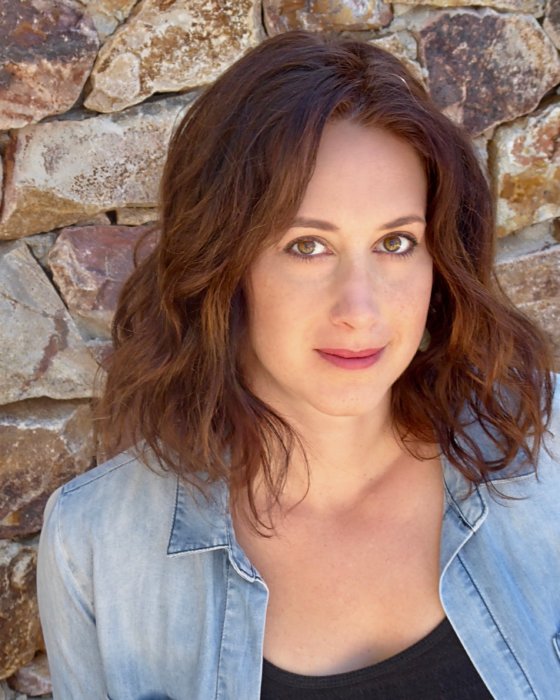
What was it that made you want to start writing plays in the first place?
I was very gung-ho about being an actor in musical theater, and that’s one of the reasons that I chose Columbia for college—my parents really wanted me to have a liberal arts education, but I wanted to be in the center of the theater world in New York. So, I cobbled together my own arts education. I started auditioning and acting and coming from Columbia, I didn’t have the same kind of community as other people who had graduated from conservatory programs. I was going to these auditions and feeling like it was just me, and I was really missing out on that group of friends that goes to auditions together and signs each other up. I was finding it just a little bit lonely and I decided, since I had a writing background and it was something that I did for fun, I should try to write a musical and create the opportunities for myself and for my friends, instead of just waiting for somebody to call me into a room and sing some bars and then wait for them to say yes or no.
During a day of ‘Beauty and the Beast’ auditions, I [was in] Barnes and Noble and found a book called the ‘Musical Theatre Writer’s Survival Guide’ written by David Spencer who is one of the teacher’s in the BMI musical workshop. In the book he says how he’s not going to repeat the lessons in the workshop, but if you’re in New York you should try and do it because it’s life-changing. So, I sent in some of the lyrics that I had written in college on the guitar for fun, and they accepted me into the workshop as a lyricist. It was really there for the first time that I felt like I had a theater community. It was the first time I discovered that I loved writing and that I had more autonomy over my life and my creative process and working with collaborators to shape a story. It was just really fun. So, I started doing that for a while and I wrote a play during that time and decided I wanted to learn more about playwriting.
Where did the idea for ‘The Garbologists’ come from?
I had just written a play that took place inside of a truck, ‘Trayfe’, which was my grad school thesis. [It] was about two orthodox teenage guys driving around in this U Haul in Manhattan, I was sort of interested in plays that took place in small confined spaces where people were thrown together. The motivation for ‘Trayfe’ was what do these Hasidic Jews talk about when they’re not on the job? What do they talk about in the in-between moments when they’re passing the time? So, my brain was already living there.
I was away with some friends for the weekend and one of the people there was a sanitation worker, and he just was a person who really surprised me. I came in with some automatic pre-judgments about who he would be and he just really hanged my expectations by being not this tough, gruff, blue-collar union guy. He had an open heart and he was not afraid to talk about his vulnerability and experiences. He was just a really great person to spend the weekend with, and he loved sanitation.
He had a college degree, he had a previous career in audio engineering and he chose to pursue sanitation because he was making a ton of money doing it—with blizzard overtime we was making six figures—which is not what I expected. He found it to be a stable, good job that he was proud to do. I’m always really excited for the times I’m able to see into my blind spots and realize this is not what I thought it was and I want to know more, and maybe some other people are going to want to know more.
So, I started researching about sanitation and I got to interview him a couple of times and he was thrilled to talk about his job experiences. I started reading Robin Nagle’s book ‘Picking Up,’she’s a social anthropologist who studies garbology. [After that] I said to my friend that I was really excited to set another play in a truck, and maybe, I would do a truck trilogy of three different careers that happened in three different trucks. So that became the project.
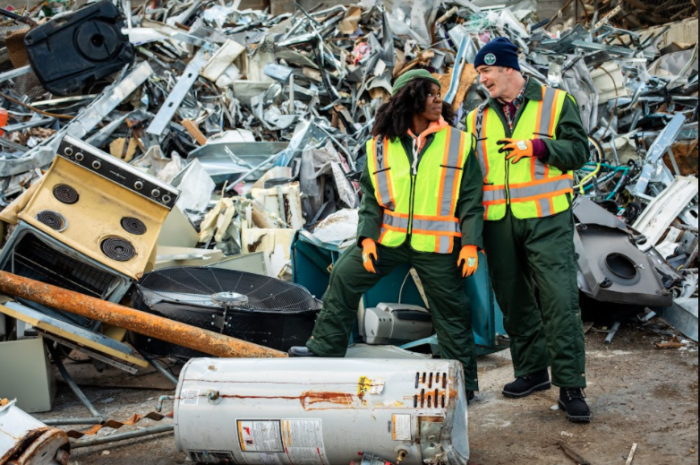
It seems like that was an organic process from your first play to your second.
It usually happens like that. It’s usually a very specific person that I meet that belongs to a specific community or a micro-community that I don’t know very much about and who are open and willing to tell me what that experience is like. I love learning different lingo that different on-the-job communities use and different details about life on the job that I would never experience in the course of my particular day to day.
How would you describe the show?
I would say it’s a comedy with some serious themes. I would say that it’s hopeful and overall, it’s about two people who come from really different background and communities who are searching for common ground along the route. They’re paired together and they’re searching for common ground and they’re finding more in common than they initially thought. It’s a story about an unlikely partnership.
Why blend comedy and drama together to tell this story?
My high school drama teacher told me: You have to make them laugh in order to make them feel. I think when we let our guard down enough to laugh at something, it really opens up our hearts and makes us susceptible to what comes next.
Overall, what do you hope people take away from the show?
When I spoke to several sanitation workers researching this play, a theme that came up a lot was invisibility. A lot of them felt that when they’re in uniform, they kind of blend into the fabric of the city and people don’t notice them. When you think about how pervasive garbage trucks are, I’m sure we all see garbage trucks several times during our day and we don’t note them or the people who are picking up our trash to keeping our streets clean or keeping our cities free from disease.
I wanted to write this play to give a voice to a community of people who sometimes feel invisible but who are essential workers in keeping the city running. So, if people leave this production and just are a little bit more aware of what they throw out, how they throw it out—or, if you wave at a sanitation worker or give them a thumbs up after you see the play, I think that’s a win.
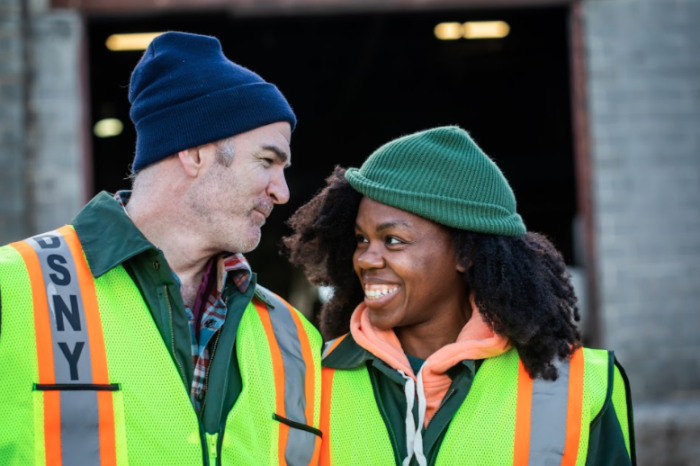
‘The Garbologists’ opens at the Philadelphia Theater Company Nov. 11 and runs through Dec. 5.



